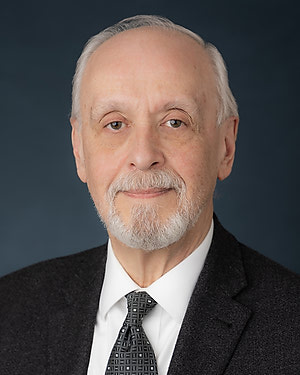Research Lab Results
-
Joseph Margolick Lab
Research in the Joseph Margolick Lab focuses on the many effects of HIV/AIDS on human health. We are particularly interested in the mechanisms of T-cell loss and preservation among people infected with HIV and the evaluation of human immune functions.
-
JHU NIMH Research Center
The Johns Hopkins NIMH Center is comprised of an interdisciplinary research team who has pooled their talents to study the nature of HIV-associated neurocognitive disorders (HAND). Their aim is to translate discoveries of the pathophysiological mechanisms into novel therapeutics for HAND.Our objectives are to integrate aspects of ongoing research in HAND and SIV encephalitis; to develop high-throughput and screening assays for identifying novel therapeutic compounds; to use proteomics and lipidomics approaches to indentifying surrogate markers of disease activity; to disseminate information and education about HAND through existing and new educational systems, including the JHU AIDS Education Training Center and the JHU Center for Global Clinical Education and to facilitate the entry of new investigators into neuro-AIDS research, and to catalyze new areas of research, particularly where relevant for drug discovery or the development of validated surrogate markers. -
Gregory Kirk Lab
Research in the Gregory Kirk Lab examines the natural history of viral infections — particularly HIV and hepatitis viruses — in the U.S. and globally. As part of the ALIVE (AIDS Linked to the Intravenous Experience) study, our research looks at a range of pathogenetic, clinical behavioral issues, with a special focus on non-AIDS-related outcomes of HIV, including cancer and liver and lung diseases. We use imaging and clinical, genetic, epigenetic and proteomic methods to identify and learn more about people at greatest risk for clinically relevant outcomes from HIV, hepatitis B and hepatitis C infections. Our long-term goal is to translate our findings into targeted interventions that help reduce the disease burden of these infections.
-
David Celentano Lab
The David Celentano Lab studies behavioral and social epidemiology by integrating behavioral science theory and research with epidemiology methods. Our team directs epidemiological investigations and stages preventive interventions targeting HIV/AIDS and other sexually transmitted infections.
-
Wu Lab
Dr. Wu leads a multi-disciplinary team with collaborators from the Bloomberg School of Public Health, JHU Whiting School of Engineering, and JHU Krieger School of Arts and Sciences. She conducts ongoing investigations with the Multicenter AIDS Cohort Study and Women’s Inter-agency Health Study. Her lab’s goals are to develop, implement, and validate novel imaging-based metrics of cardiac structure and function to improve risk prediction and stratification at the individual patient-level. Research Focuses: Predictors of Sudden Cardiac Death by Magnetic Resonance Imaging Subclinical myocardial disease in people living with HIV Individualized risk prediction Cardiac structural and mechanical modeling
-
Kelly Gebo Lab
Work in the Kelly Gebo Lab focuses on topics such as evidence-based practice, health utilization, policy generation, health disparities in patient access to health care, HIV/AIDS, aging and hepatitis. As part of the HIV Research Network (HIVRN), our lab gathers clinical and demographic data on HIV-infected patients to help develop a single, nationwide research database. In addition, our ongoing research explores evidence-based practice in relation to the management of hepatitis C as well as HIV/AIDS in mentally ill patients. We also investigate racial and gender disparities in patients who receive highly active antiretroviral therapy.
-
Larry Chang Lab
Research in the Larry Chang Lab focuses on innovative, multidisciplinary and pragmatic approaches to impacting the HIV/AIDS pandemic. Our research investigates ways to improve HIV/AIDS care in low- and middle-income settings through strategies that include quantitative methods, qualitative methods, community-based trial designs, and behavioral science and economic evaluations. In addition, we research mobile technologies for health (mHealth) strategies for improving global public health and clinical care, including novel applications for intimate-partner violence intervention, dengue surveillance, and HIV care, surveillance and prevention.
-
Thomas Quinn Lab
Research in the Thomas Quinn Lab encompasses epidemiology, pathogenesis and clinical features of HIV/AIDS internationally, which includes the interaction between STDs and tropical diseases on the natural history and spread of HIV/AIDS in developing countries. Our recent research has examined the viral kinetics and transmission probabilities of HIV among discordant couples with the subsequent design and application of interventions, including therapy to prevent transmission of HIV. Molecular studies have mapped the molecular epidemic of HIV on a global basis, linking virologic changes to the spread of HIV and measuring the demographic impact of the epidemic.
-
Richard Moore Lab
Research interests in the Richard Moore Lab include clinical epidemiology, costs, cost-effectiveness and outcomes of HIV/AIDS. We recently examined whether the effect of delaying antiretroviral therapy initiation in HIV-positive adults is modified by age at entry into care.
-
Stuart C. Ray Lab
Chronic viral hepatitis (due to HBV and HCV) is a major cause of liver disease worldwide, and an increasing cause of death in persons living with HIV/AIDS. Our laboratory studies are aimed at better defining the host-pathogen interactions in these infections, with particular focus on humoral and cellular immune responses, viral evasion, inflammation, fibrosis progression, and drug resistance. We are engaged in synthetic biology approaches to rational vaccine development and understanding the limits on the extraordinary genetic variability of HCV.

